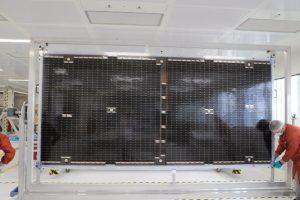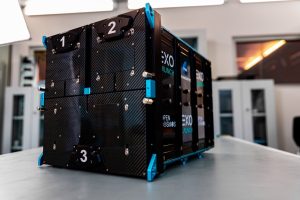The aim is to significantly limit the proliferation of debris – in Earth and Lunar orbits – by 2030, for all future missions, programmes and activities. And to ensure compliant satellites can be designed and built in time, ESA says it will be “supporting industry during this technologically challenging transition”.
Satellite bus
The three European companies signing up to the Zero Debris requirements are: Airbus Defence and Space, Thales Alenia Space and OHB. The contracts are key, says the agency, to the development of a standardised LEO satellite bus that adheres to the zero-debris standards,
“It is essential to invest into the development of zero-debris compliant spacecraft platforms now. Platforms and their onboard debris prevention measures will have to become more failsafe to preserve the endangered lower Earth orbits for future use,” said Holger Krag, Head of Space Safety at ESA.
“Working together with three long-standing industrial partners allows us to deliver on our promise to put a stop to future debris creation.”
Twelve countries and a hundred companies, institutions and organisations have already committed to sign the agency’s Charter.
Zero Debris
The commitment includes eight recommendations covering such areas as guaranteeing successful disposal of objects, reducing the time an object is in orbit, better avoiding in-orbit collisions, improved health monitoring to avoid system explosions, and avoiding the intentional release of space debris, for example, such as protective covers, lens caps, and rocket fairings…
The ESA first announced the finalised Zero Charter in November 2023, and the first Zero Debris Charter Co-Development Workshop was held in Paris the same month.
Is this an achievable goal and just good practice, or a Blairite target of aspiration? Will the devil be in the detail or in the definition of Acts of God? Leave your comments below.
Image: ESA – Tiago Soares, Francesca Cirillo (Airbus Defence and Space), Pierre Dandre (Thales Alenia Space), Rolf Densing and Christiane Bergemann (OHB) at the contract signing.
See also: ESA, NASA ramp up co-operation to land Europe’s ExoMars rover on Mars
 Electronics Weekly Electronics Design & Components Tech News
Electronics Weekly Electronics Design & Components Tech News




